Speakers

Dr Annie McCluskey
PhD MA DipCOT
Occupational Therapist, Researcher, Private Practitioner, University Of Sydney
Co-Director, OTseeker Evidence Database
Developer, OT-CATS
Annie McCluskey clinical specialty areas include evidence-based intervention and outcome measurement for adults with neurological conditions (particularly stroke and brain injury), physical rehabilitation, upper limb therapy, (adult) handwriting retraining and optimising community participation.
Annie has been awarded over $2 million in research funding, and published over 40 peer reviewed papers including a Cochrane review. She is lead investigator on a cluster randomised trial, the ‘Out-and-About’ trial evaluating the efficacy and cost effectiveness of a knowledge translation program to change post-hospital practice of occupational therapists and physiotherapists, and improve participation by stroke survivors.
In addition to conducting stroke rehabilitation research, Annie has contributed to research higher degree training (PhD, masters and honours students) and capacity building with allied health professionals. She has assisted many therapists and students to prepare for, and present research at national conferences, and submit their work for publication.
Finally, Annie has expertise in teaching and education having taught undergraduate and graduates. She currently teaches stroke rehabilitation workshops, master classes on upper limb rehabilitation to small groups of therapists, and sessions on evidence-based practice (eg journal clubs, critical appraisal).
Workshop:
Implementing Evidence in Practice: A Workshop for Clinicians and Managers
Research about treatment effectiveness can take years to reach clients. Reasons for the slow translation of research to daily practice include: difficulty accepting research findings (beliefs and attitudes), not being aware of the evidence or what to do (knowledge, skills, and beliefs about capabilities) and having limited opportunity to enact it (physical and/or social environment limiting research uptake). The presenter is an occupational therapist with experience helping individuals and teams to implement evidence in hospital and community settings, and who has published on the topic.
Learning Objectives: Workshop participants will learn how to: Identify research-practice gaps; analyse local barriers and enablers to implementation of an evidence-based intervention; and identify strategies to overcome these barriers in order to be able to close the research-practice gap in their own work setting.
Teaching Methods/Approach and Content: Lecture and small group sessions covering:
- Steps in the implementation process;
- Identifying evidence-practice gaps; including examples;
- Assessing barriers and enablers to implementation
- Selecting strategies to address barriers and enhance enablers (e.g. audit/feedback, education, reminders); and
- Evaluating implementation outcomes, including at the level of the practitioner and team (eg, patients receiving the target intervention) and patient (e.g. patients with improved health outcomes).
Learning Outcomes: This workshop will provide participants with the skills and knowledge to implement interventions described in clinical guidelines, systematic reviews and randomised controlled trials at the individual client and service level.
KEYNOTE:
Translating Evidence into Practice

Ms Eng Jia Yen
National University
Jia Yen graduated from Nanyang Polytechnic In 2002 and has been working in National University Hospital since then. Having obtained a Master of Health Science (Honours) in 2008 from University of Sydney, she continued to work in the inpatient and outpatient setting dealing with patients suffering from stroke, orthopaedic, oenological conditions and the geriatric population. She currently spearheads the G-Race community program and OT arm.
PLENARY SESSION:
The OT PRICE for Collaboration and Innovation
- NUH Early Supported Discharge program (Stroke rehabilitation at home), brief outline of program and results
- EDTU (Extended Diagnostic Treatment Unit) OT services for patients who require OT assessment and OT treatment and recommendation to be warded or to be discharged home
- Total Lymphoedema Care (TLC) clinic comprising of Gynae-oncologist, nurse clinician, plastic surgeon, Infection Control Physician, Physiotherapist, Occupational Therapist, brief outline of program and delivery mode and challenges and negotiation
- Low Vision Enabling (LoVE) program consisting of ophthalmologist, optometrist, occupational therapist, case management role and community partners
- G-Race Community Program comprising of Psychogeriatricians, Psychiatrics, psychologist, occupational therapist, nurses, case management role and community partners
What it takes: PRICE (Further collaboration on soft skills):
Passion
Reflection and Resilience
Integrative
Connection
Empower
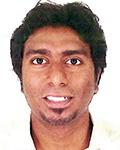
Mr Jayson Sudhasan
Senior Occupational Therapist
Institute of Mental Health
Mr Jayson Sudhasan K is a senior Occupational Therapist with the Institute of Mental Health. Having worked in a few settings within IMH for the past 8yrs, Mr Jayson has identified vocational rehabilitation as his main area of interest. Mr Jayson’s daily work involves the rehabilitation of clients with psychiatric conditions. He engages in collaborative goal setting and facilitating clients to achieve their goals. He engages them with skills training and coping strategies required for community reintegration. In addition, he oversees the IMH OCTAVE’s vocational training program and assists with pertaining administrative matters.
Workshop:
Vocational Rehabilitation in Mental Health
- Appreciate the History of Vocational Rehabilitation in Mental Health
- Appreciate theories underpinning Vocational Rehabilitation in Mental Health
- Identify various assessment tools and intervention for Vocational Rehabilitation
- Identify current research outcomes in Vocational Rehabilitation in Mental Health
- Appreciate the use of Evidence Base Practice in Vocational Rehabilitation in Mental Health

Ms Lee Ching Hoon
St Luke Hospital
Lee Ching Hoon graduated from NYP in 1998 with a diploma in Occupational Therapy and went on to complete her degree in Health Science (Occupational Therapy) with University of Sydney in 2001. She also holds a Master of Arts degree in Applied Psychology (Counseling) from NTU (2006) and a postgraduate diploma in Higher Education (PGDHE) from NIE international (2013).
She has 14 years of working experience and has previously worked at CGH and KKH. She is currently working at St. Luke’s Hospital. She has experience both as an educator and mentor. She has done supervision and mentoring about 10 years. In 2011, she developed the mentoring framework for therapist working at St. Luke’s Hospital assisting in the skills and knowledge development of mentees and mentors. In March 2013, she obtained her qualification to become a certified counselling/ professional supervisor under Association of Psychotherapists and Counsellors, Singapore (APACS) and Australian Counselling Association (ACA).
Workshop:
Mentoring: What is it? How to do it?
- Concept of mentoring, its benefits and some of its challenges.
- Considerations when designing mentoring program
- Establishing effective mentoring relationship — roles and responsibilities of mentor, qualities for effective mentoring, setting healthy boundaries during mentoring.
- Critical strategies and tools to support the teaching process.
- Managing the mentoring relationship — practical model of mentoring, goal setting, mentoring plan and agreement.
- Case studies discussion — e.g. mental health issues and mentoring

Ms Li Zhongying
Senior Occupational Therapist
Institute of Mental Health
Ms Li Zhongying graduated from Nanyang Polytechnic (Singapore) with a Diploma in Occupational Therapy in year 2000 and has been working as an Occupational Therapist in the Institute of Mental Health. Currently she is a senior Occupational Therapist there. Throughout her years of working in IMH, she has worked in different psychiatric settings; and currently she is working in a vocational rehabilitation program — the Job Club. Zhongying completed her degree conversion course in Occupational Therapy with the University of Sydney from year 2004 to 2005. She obtained her master degree in Rehabilitation Psychology from the University of Wisconsin, United States in year 2012. She also holds the Certified Rehabilitation Counselor credential.
Workshop:
Vocational Rehabilitation in Mental Health
- Appreciate the History of Vocational Rehabilitation in Mental Health
- Appreciate theories underpinning Vocational Rehabilitation in Mental Health
- Identify various assessment tools and intervention for Vocational Rehabilitation
- Identify current research outcomes in Vocational Rehabilitation in Mental Health
- Appreciate the use of Evidence Base Practice in Vocational Rehabilitation in Mental Health

Ms Sarah Yong
Speech Therapist
Society for the Physically Disabled
Ms Sarah Yong is an Assistive Technology Specialist and Clinical Head at the Specialised ATC, Society for the Physically Disabled. She is a certified RESNA Assistive Technology Professional (ATP). She also holds a Certificate of Advanced Professional Development in Assistive Technology (AT) Applications from the California State University, Northridge, USA. A Speech Therapist by training, she holds a Master of Arts in Speech Language Pathology from the University of Texas at Austin. Her roles at the Specialised ATC include enabling individuals with complex communication needs with the ability to express themselves through both low tech and high tech AAC solutions. Together with the team, she also participates in public education, and research development in the area of AT/AAC. In September 2002, she was awarded the Bridge School/ISAAC International Teacher in Residence Scholarship, where she spent a year enhancing her knowledge of AAC as well as networking with various experts in the field. More recently, she has also played an active role in developing AAC in countries where the field is still emerging as part of the International Society for Augmentative and Alternative Communication (ISAAC) BUILD Committee.
WORKSHOP:
Understanding Assistive Technology for Persons with Disabilities (½ day, AM)
AT can play a major role in enabling persons with disabilities to engage in their occupations of choice and participate fully in the community. The use of appropriate AT promotes independence and enables participation in personal activities, communication, productivity and leisure.
This half day workshop will provide the participants with a basic introduction to the principles of Assistive Technology. A Service Delivery Framework will be presented to give the participants an overview of the AT intervention process. Case studies will be presented to illustrate the application of AT in achieving independence in their daily activities. Participants will also be able to better understand the different types of Assistive Technology devices through experiential learning activities.

Ms Sim So Sin
Lecturer, Occupational Therapy Program
Nanyang Polytechnic
So Sin holds a BSc in Occupational Therapy (Hons) from University of Exeter (UK)(1998), a Masters of Soc. Science in Professional Counselling (2008) from Swinburne Technological University (Australia) and a Graduate Diploma in Child Psychotherapy Studies (2010) (University of Monash) She is currently lecturing in the occupational therapy program in Nanyang Polytechnic.
For the last 15 years, she has been treating clients with various mental health conditions at Institute of Mental Health and Changi General Hospital (CGH). So Sin has also spent some time doing a trauma project at KKH. She also chaired the peer support program at CGH and went to spearhead the Staff Crisis Management Project funded by Ministry of Health, as the Deputy Project Director.
She has published papers related to psychological impact of disaster, was involved in research work concerning workplace mental health, use of hydrotherapy in reducing anxiety and intervention for post-stroke depression. Her current clinical interests are in use of expressive arts in therapy, sensory modulation in mental health, maternal-infant mental health and cognitive training.
Workshop:
Mentoring: What is it? How to do it?
- Concept of mentoring, its benefits and some of its challenges.
- Considerations when designing mentoring program
- Establishing effective mentoring relationship — roles and responsibilities of mentor, qualities for effective mentoring, setting healthy boundaries during mentoring.
- Critical strategies and tools to support the teaching process.
- Managing the mentoring relationship — practical model of mentoring, goal setting, mentoring plan and agreement.
- Case studies discussion — e.g. mental health issues and mentoring

Dr Tan Bhing Leet
Head of Occupational Therapy Department
Institute of Mental Health
Bhing Leet oversees 81 Occupational Therapy staff (53 occupational therapists and 28 other executive and support staff) within IMH’s various inpatient, outpatient rehab, specialised programmes and outreach teams. She works with her staff on strategic planning of clinical services, professional development and operational processes of the department. She also works with various government bodies and voluntary welfare organisations to improve provision of mental health services for the nation.
She obtained her PhD in Psychiatry: School of Medicine at University of Queensland, Australia. Prior to that, she had a Masters in Mental Health (Distinction) from Kings College University of London, UK and a BSc(Hons) in Occupational Therapy-First Class, from University of Exeter, UK.
She received a National Day Award Commendation Medal in 2011 for her contribution to public healthcare and is currently an appointed Board Member of Brahm Centre.
PLENARY SESSION:
Collaborations and Innovations in Mental Health Care
- Development of mental healthcare provision over the past 10 years and how it has led to changing demands for Occupational Therapy practice.
- How Occupational Therapists have collaborated with various agencies to expand repertoire of the profession
- Development of specialised areas of practice within Occupational Therapy (eg: cognitive remediation, prisons work, sensory-based interventions in psychiatry, mindfulness-based practices).
- Challenges ahead for Occupational Therapists in clinical practice and research within mental health
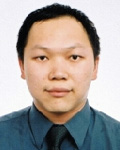
Mr Tan Chuan Hoh
Assistive Technology (AT) Specialist
Society for the Physically Disabled
Mr Tan Chuan Hoh is a certified Assistive Technology Professional (ATP), awarded by the Rehabilitation Engineering and Assistive Technology Society of North America (RESNA) since 2005. He also holds a Certificate of Advanced Professional Development (with Distinctions) in Assistive Technology Applications from the California State University, Northridge, USA. He is an Occupational Therapist by training and has a Master of Science (Occupational Therapy) from the University at Buffalo, New York. He specialises in AT applications with neurological and musculoskeletal dysfunctions especially in the areas of computer access, powered mobility and environmental control. His roles in the Specialised ATC include conducting AT assessment and training, modifying and customizing assistive technology devices, conducting training workshops and talks on AT and participating in research projects related to AT applications.
WORKSHOP:
Understanding Assistive Technology for Persons with Disabilities (½ day, AM)
AT can play a major role in enabling persons with disabilities to engage in their occupations of choice and participate fully in the community. The use of appropriate AT promotes independence and enables participation in personal activities, communication, productivity and leisure.
This half day workshop will provide the participants with a basic introduction to the principles of Assistive Technology. A Service Delivery Framework will be presented to give the participants an overview of the AT intervention process. Case studies will be presented to illustrate the application of AT in achieving independence in their daily activities. Participants will also be able to better understand the different types of Assistive Technology devices through experiential learning activities.
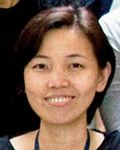
Ms Tan Peck Yan
Senior Occupational Therapist
Institute of Mental Health
Ms Tan Peck Yan has about 10 years of mental health working experience in Singapore. Since 2005, she has been working at the vocational rehabilitation unit of IMH and has worked with clients from F&B, retail, car-wash and cleaning industries. She was also briefly posted to the now-defunct social enterprise café at Raffles Place to provide rehabilitative psychosocial services to clients working at the café. She was the former team leader of the vocational rehabilitative unit and is now managing an outlying rehabilitation centre at Bukit Batok.
Workshop:
Vocational Rehabilitation in Mental Health
- Appreciate the History of Vocational Rehabilitation in Mental Health
- Appreciate theories underpinning Vocational Rehabilitation in Mental Health
- Identify various assessment tools and intervention for Vocational Rehabilitation
- Identify current research outcomes in Vocational Rehabilitation in Mental Health
- Appreciate the use of Evidence Base Practice in Vocational Rehabilitation in Mental Health
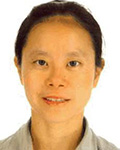
Ms Tan Peng Chian
Occupational Therapist
Private Practice
One of her ongoing projects include conducting workshops and consulting with Autism Resource Centre. Previously she had worked in the Department of Child Development, KK Women’s and Children’s Hospital (KKH) as Principal Occupational Therapist and was consultant Occupational Therapist to various EIPIC program in Singapore.
Ms Tan has a Bachelor of Occupational Therapy (First Class Honours) from the University of Queensland, Australia and a Masters in Occupational Therapy and Occupational Science awarded by University of South California, Los Angeles, USA.
With more than 17 years of experience working with children with Autism, learning disabilities and other developmental difficulties, Ms Tan has contributed significantly through research on pretend play, sensory profile, sensory processing, visual motor integration and motor planning.
In the last 10 years, Ms Tan has given numerous public forums and conducts regular workshops on Handwriting and Sensory Processing difficulties as well as sensory integration and motor coordination difficulties of children with autism.
Workshop:
Mentoring: What is it? How to do it?
- Concept of mentoring, its benefits and some of its challenges.
- Considerations when designing mentoring program
- Establishing effective mentoring relationship — roles and responsibilities of mentor, qualities for effective mentoring, setting healthy boundaries during mentoring.
- Critical strategies and tools to support the teaching process.
- Managing the mentoring relationship — practical model of mentoring, goal setting, mentoring plan and agreement.
- Case studies discussion — e.g. mental health issues and mentoring
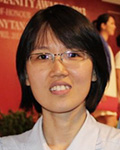
Ms Wendy Chua
Principal Occupational Therapist
Institute of Mental Health
Ms Wendy Chua main interest is in Community Mental Health. Ms Chua’s work involves the rehabilitation of patients with mental conditions, reintegrating them back into the community and giving them back the necessary skills for day-to-day living. She has been working in this field for 10 years and her role includes overseeing outpatient rehabilitation and assisting in administrative matters within the department. Here, she has revamped the outpatient services and streamlined them so that patients now have a one-stop centre for outpatient services.
Workshop:
Vocational Rehabilitation in Mental Health
- Appreciate the History of Vocational Rehabilitation in Mental Health
- Appreciate theories underpinning Vocational Rehabilitation in Mental Health
- Identify various assessment tools and intervention for Vocational Rehabilitation
- Identify current research outcomes in Vocational Rehabilitation in Mental Health
- Appreciate the use of Evidence Base Practice in Vocational Rehabilitation in Mental Health

